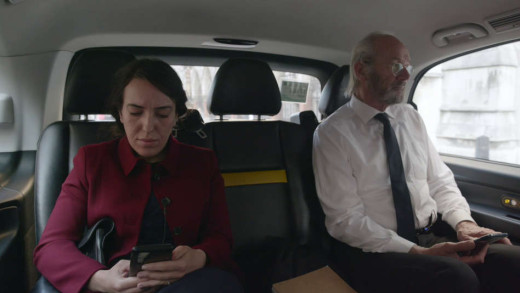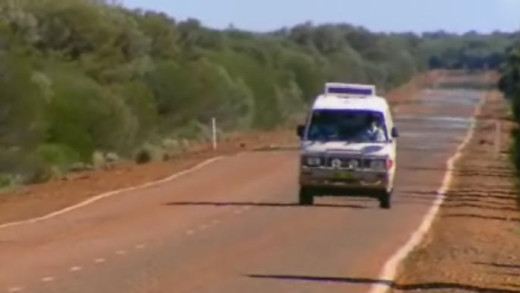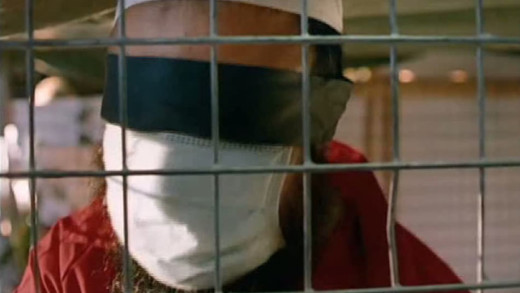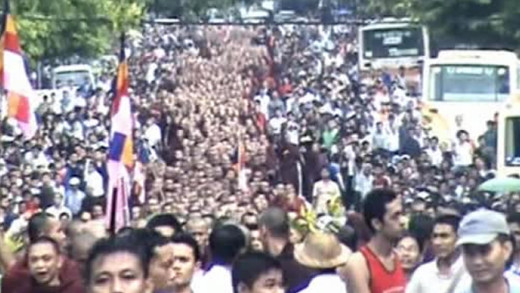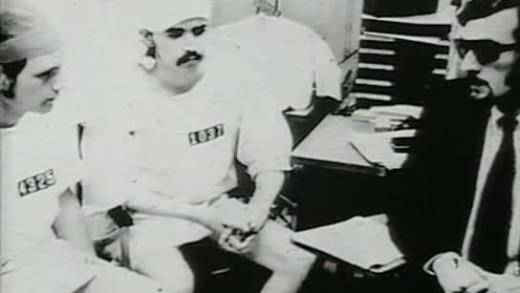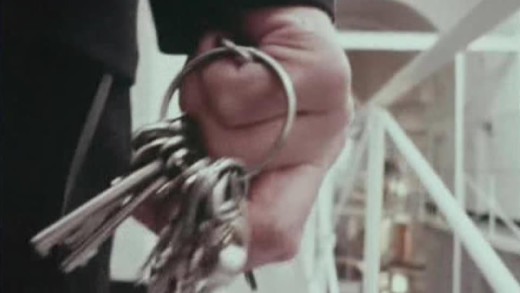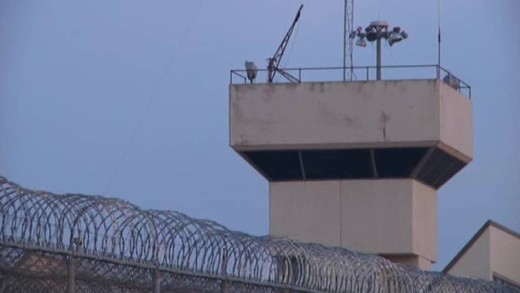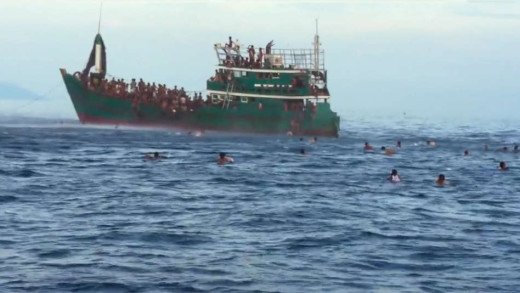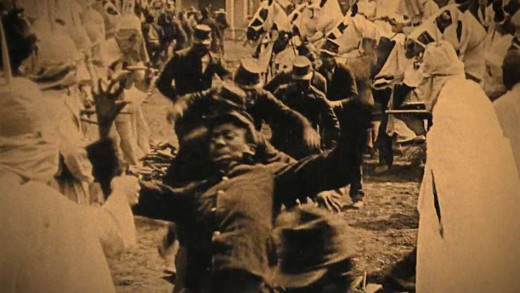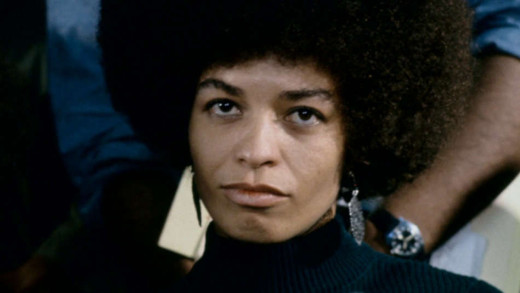Ithaka
Ithaka depicts the incarceration of WikiLeaks founder Julian Assange through the experience of his wife Stella Assange and his father John Shipton. Julian Assange faces a 175-year sentence if extradited to the United States. His family members are confronting the prospect of losing Julian forever to the abyss of the justice system. This David-and-Goliath struggle is personal, and, with Julian's health declining in a British maximum-security prison, the clock is ticking. Through this behind-the-scenes view of the extradition hearing, the films grasp the personal cost paid by Julian and the true cost of truth.
The shocking story of a well respected Indigenous community leader in outback Western Australia who was locked in a metal cell in the back of a prison van and driven through the desert in the searing heat. Four hours later he was dead. Reporter Liz Jackson reveals the tragic train of events that led to this death, despite repeated warnings that Western Australia's prisoner transport system was unsafe and inhumane...
In the wake of the attacks of September 11th 2001, the United States opened a prison camp in Guantánamo Bay, Cuba. The hundreds of prisoners detained there are not afforded prisoners of war status according to the Geneva Convention, they are labelled "unlawful combatants" and are held indefinitely and tortured with no right to a lawyer or a trial. Gitmo -- The New Rules Of War cuts through the official political rhetoric surrounding Guantánamo to expose what really goes on at the United States central gulag in the 'war on terror'.
By risking torture and life in jail, courageous young citizens of Burma live the essence of journalism as they document the uprisings against the military regime in 2007. Armed with small handycams, the Burma VJs stop at nothing to make their reports from the streets of Rangoon. Their video footage is smuggled out of the country and broadcast back in via satellite and offered up for use in the international media. The whole world witnesses single event clips made by the VJs, but for the very first time, the individual images have been put together here to tell a much bigger story...
In the summer of 1971, Philip Zimbardo, Craig Haney, and Curtis Banks carried out a psychological experiment to test a simple question: What happens when you put ordinary people in positions of power, enabling abuse? Does humanity win over evil, or does evil triumph? To explore this, student volunteers were selected and randomly assigned to play the role of prisoner or guard in a simulated prison at Stanford University. Although the students were mentally healthy and knew they were taking part in an experiment, some guards quickly became sadistic, while prisoners showed signs of acute stress, depression and trauma. After only six days, the planned two-week study was a disaster...
Guilty Until Proven Innocent reports on the issue of innocent people confined to prisons on remand in the UK, circa 1974. People are imprisoned without trial and are later released with either a small fine, a set of mandatory conditions, or leave completely innocent. It's a strange set of circumstances in a country with such pretensions of a bill of rights and espoused 'legal protections.' Is bail a right or a privilege?
For the past 40 years, the war on drugs has resulted in more than 45 million arrests, one trillion dollars in government spending, and the arrival of the United States as the world's largest jailer with almost 2.3 million individuals incarcerated. Yet for all that, drugs are cheaper, purer, and more available than ever. Filmed across the country, The House I Live In provides the experience firsthand of those on the front lines—from the dealer to the grieving mother, the narcotics officer to the senator, the inmate to the federal judge—and offers a penetrating look at the profound human rights implications of the so-called war on drugs.
Abused
Abused--Battered Woman's Syndrome and Murder is a revelatory film showing how the legal system of this culture treats women who fight back against their abusers. 19 year-old Susan Greenberg pled guilty to killing the man who systematically abused her and was sentenced to twenty-five years to life for first degree murder. After serving 18 years in prison, Greenberg was one of the first women to test a new state law that allows women convicted of murder to ask a judge for release based on evidence of Battered Woman Syndrome. This story follows her struggle and the surprising dramatic results.
Chasing Asylum
Chasing Asylum explores the human, political, financial and moral consequences of the Australian Government's "off-shore processing" immigration policy, which is the only country in the world to mandate indefinite detention for adults and children seeking asylum. Since this policy was restarted in 2001, it has grown into an internationally condemned, secretive regime. Inside the detention centres there have been violent deaths, suicides, horrific acts of self-harm, sexual abuse, and mass protests. Composed of footage secretly recorded inside Australia's offshore detention camps, and explored through the eye-witness accounts of social workers and support workers, Chasing Asylum presents the hidden offshore world, where governments choose detention over compassion, a system of depriving vulnerable people of their basic human rights, and spending huge amounts of money keeping it secret and out of the public eye. The result is a sobering overall picture of a system that asks its citizens to abide by rule of law, but shows little regard to do so itself.
13th
13th explores the intersection of race, justice, and mass incarceration in the United States, as titled after the Thirteenth Amendment to the United States Constitution, adopted in 1865, which purported to abolish slavery throughout the United States and end involuntary servitude except as a punishment for conviction of a crime. The film contends that slavery has been perpetuated since the end of the American Civil War through criminalising behaviour and enabling police to arrest poor enslaved people and force them to work for the state under convict leasing; suppression of African Americans by disenfranchisement, lynchings and Jim Crow; politicians declaring a war on drugs that weighs more heavily on minority communities and, by the late 20th century, mass incarceration of people of colour in the United States. 13th examines the prison-industrial complex and the emerging detention-industrial complex, discussing how much money is being made by corporations from mass incarcerations.
Free Angela and All Political Prisoners chronicles the life of college professor and civil rights activist Angela Davis, whose affiliation with the Communist Party and the Black Panthers in the 1970s landed her on the FBI's Ten Most Wanted list. This film documents her early years as a student, through to her highly publicised arrest, trial, and subsequent acquittal after 22 months of prison, following a botched kidnapping attempt of Marin County judge Harold Haley in California. The film explores every remarkable detail of Davis' life, as told through her own stories and a series of intimate interviews.
